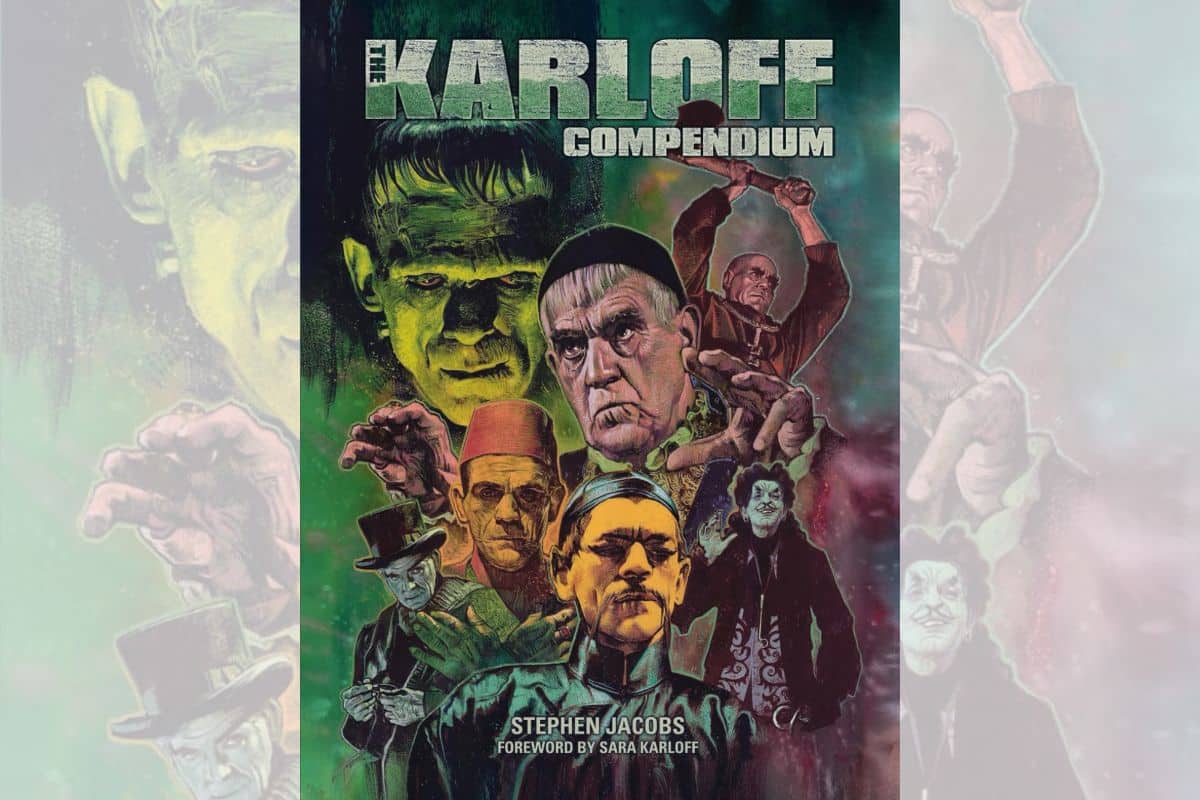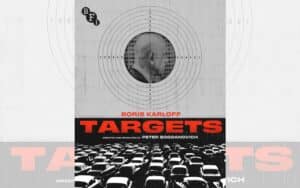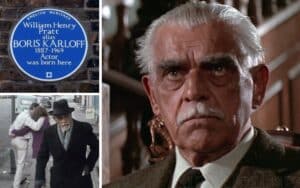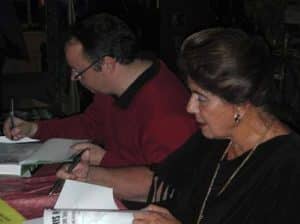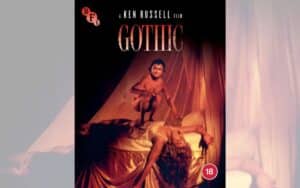Stephen Jacobs’ The Karloff Compendium is a must-read, offering rich anecdotes and new insights, making it a valuable addition for any Boris Karloff and horror enthusiast, writes TERRY SHERWOOD
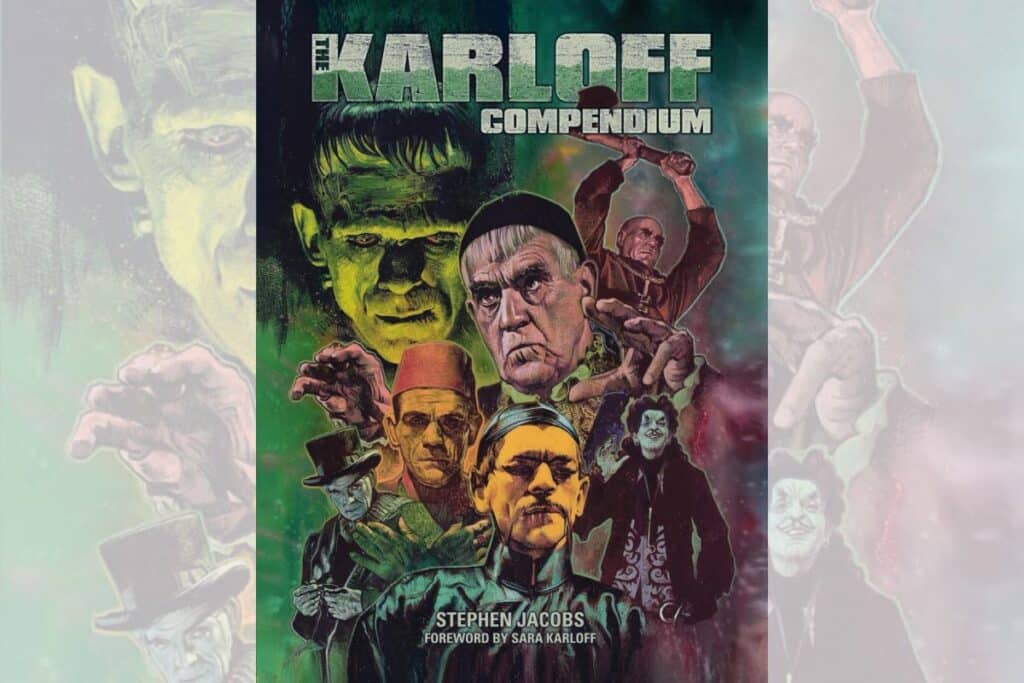
The Karloff Compendium Review
You could say I am somewhat of a student of the horror genre, not a Student of Prague (1913). I have read extensively on “Dear Boris,” including Mr. Jacobs’ first volume Boris Karloff: More than a Monster, and like those sequels, I wondered what else one could mine from the life of one William Pratt.
I was pleasantly surprised by The Karloff Compendium, a 300-plus-page coffee table-sized book that you can pick up anytime, open to any page, and learn something new about the one and only Boris Karloff.
Chapters are filled with anecdotes that delve deeper than the first book. Practically every conceivable production is given a synopsis, plus multiple reviews. Interestingly, many reviews are not complimentary to most of the later films and even some from the so-called classic age.
This provides a bit of perspective on how horror was perceived by people then, which didn’t save Universal Studios as hoped. The comments from Boris himself are illuminating; he often didn’t like the roles he played, particularly in later years. He always wanted to avoid being typecast as a horror actor for fear of falling out of favor and becoming jobless.
New revelations abound about what he thought of himself, supplemented with personal photos. His relationship with Bela Lugosi is explored, revealing that Karloff was proud yet somewhat shy and distrustful due to the language barrier. Initially distrustful of being upstaged or having a scene stolen from him, they became friends when he realized that wasn’t the case with Boris.
Key points include an entire chapter on James Whale’s Frankenstein and Bride of Frankenstein. Karloff’s opposition to the infamous lake scene and the flower that didn’t float is discussed, along with his thoughts on the injuries he sustained during the making of those films, which plagued him for the rest of his life.
The book offers glimpses into his personal life, such as his love of reading, animals, and his struggle to come to terms with the success that some of his family in England didn’t quite understand or appreciate. Hollywood history is also covered, including the formation of the Actors Union and how genre films fit into the landscape.
This work includes details on the Karloff legacy, with the later years often shrouded in myth. Forrest Ackerman wrote that “He threw people off things, into things, chased them, yet millions cried when he died.”
The Karloff Compendium is an exhaustive resource that would fit into any library. I suggest it is a book not just to be used as a reference but to leisurely pass the time leafing through its glossy pages. Books of this size and breadth often sit on shelves or tables for collectors, but this work deserves to be read in repeated sittings. The only drawback is the size of the type, which might slow some people down, as the amount of information takes time to assimilate.
Read it or look at the captions on any page and enjoy. Its physical size would support other books very well in more ways than one. Profusely filled with posters and commentary from the one and only Sara Jane Karloff in the form of an introduction, it’s like having Mr. Karloff in your home forever. It’s not the same as having Boris and his delightful performances, but it’s close.
The Karloff Compendium, by Stephen Jacobs, is now available from Amazon.
Tell us your thoughts about The Karloff Compendium in the comments section below!

